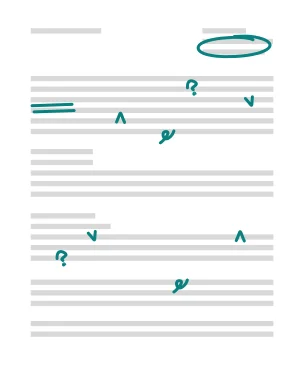If you’re applying for a job, chances are that you’ve been asked to provide references. But what is it that makes a reference “fake”? And how can you tell if it’s a good idea to use fake ones?
The first thing to know is that there are two types of references: real and fake. A real reference is one given by someone who knows you well and trusts your character—someone who could honestly say they trust you to do the right thing.
A fake reference is one given by someone who knows you only slightly or not at all—someone who might be able to give an impression of your character but wouldn’t have as much knowledge about your capabilities.
It’s also important to note that every situation is different when it comes to using fake references on applications. Some people may prefer not to use them at all because they don’t want their current employer to think they’re unprofessional or unreliable, while others might feel like they need them in order for their application to stand out from other applicants’ resumes.
Land More Interviews With A Professional Resume
Get a professional resume review from a certified career expert
Can I get away with lying about my references?
In general, it’s not a good idea to lie about references, but there are exceptions.
If you’re applying for a job that doesn’t require much background research and doesn’t require you to write a resume or cover letter, it might be okay to lie about it.For example, if you’re applying for a job at the corner store and they ask for references, then you can make up some fake people who don’t actually exist.
If the purpose of their question is simply to weed out unqualified applicants and make sure that only qualified candidates get an interview, then this is probably okay.
In most cases, though, it’s better to be honest about where your references come from. The exception here is when there is an expectation that someone will ask for references—for example, when applying for an internship with a big company or if someone has been asked by their potential employer if they have any experience with this type of company in the past.
In these cases, lying about your references could be seen as deceptive or dishonest by others involved in the process—particularly if they find out later on down the road during an interview process!
Do references actually get checked by employers?
References are a hot topic in the job market. Employers want to know that you’re a good person, but they also need to know that you can do your job well. As such, it’s important to have strong references and references that don’t contain any problems.
Your references should be people who can attest to your work ethic, integrity, and dependability. They should also be someone who knows you well enough to know what’s going on in your life without being prompted.
Your references should not be someone who is going to lie about you because he or she has an axe to grind with you—or anyone else for that matter!
Most employers have their own system for checking references, but some will ask for a letter from your current or former supervisor (if applicable). It’s also possible that the employer may have access to information about you through other channels (e.g., online employment records).
While there are many ways that employers can check references, it’s important that you present yourself well in order for them to feel comfortable doing so!

Can you get caught if you fake a reference?
If you’re looking to fake a reference, you’re probably doing it because you want to get away with something. But it doesn’t stop there: faking references can hurt your chances of getting hired in the long run.
For one thing, it’s not really true that people don’t check references—especially if they’re applying for a job in a highly competitive field like tech. Asking someone else to vouch for your skills is definitely less believable than giving them some kind of proof, which is why the best way to fake a reference is by providing real examples of your work.
You should also think about what other people might be looking for when they read your resume or application and make sure that you’ve provided all the relevant information for them to consider.
If you have an impressive background, then maybe it makes sense to include all of it on your resume. But if your job history isn’t that impressive and doesn’t really matter much anyway because you’re applying in a very different field, then maybe it doesn’t need to be included at all!
How do employers verify references?
Employers use references to verify information about candidates that could impact their hiring decisions.
References are often called upon to verify the accuracy of a candidate’s resume and employment history, as well as the candidate’s veracity when answering questions about their qualifications for a job.
Employers use references to determine whether a candidate will be able to carry out the duties for which they were hired.
A reference check is a way that employers can verify information about a candidate without having direct contact with them. Employers will typically ask colleagues, supervisors, or previous employers for feedback on their performance during previous jobs.
They might also contact former coworkers by phone or email to get an idea of how long they have worked together and what kind of work they do together.
What do I do if I cannot provide any references?
If you cannot provide any references, you may feel a bit nervous about applying for a job. However, there are a few things you can do to prepare yourself for the interview.
First, try to think about what makes you a good candidate for the job. If you have strong communication skills and have worked with clients before, then this will come across in your interview.
Second, practice answering questions about yourself and your past experiences. You can practice by writing down answers to some of these questions and reading them out loud so that they become easier to say when it’s your turn to speak them aloud during an interview.
Land More Interviews With A Professional Resume
Get a professional resume review from a certified career expert
Conclusion
You should not use fake references when applying for a job because, if you’re not careful, using fake references could backfire, making you look like someone who’s trying to pull one over on employers.
It’s also important to have a well-written resume. It can help you stand out from the crowd, and it gives you a chance to show off your personality and communication skills.
If you need help with having a well-written resume, consider having our team of expert resume writers help you out!


